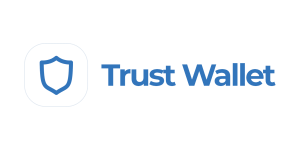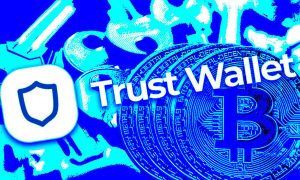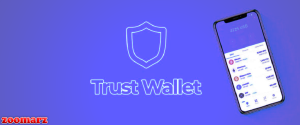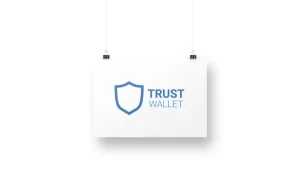Is Trust Wallet an investment app?
Trust Wallet is not primarily an investment app; it is a cryptocurrency wallet designed for storing, managing, and exchanging digital assets securely. However, it offers features like staking and token swapping, which allow users to earn rewards and manage their crypto investments within the app.

Trust Wallet Functional Positioning Explanation
Main Purpose of Trust Wallet
-
Secure Cryptocurrency Storage: Trust Wallet is primarily designed to store a wide range of cryptocurrencies securely. It gives users full ownership of their private keys and complete control over their digital assets without relying on third parties.
-
Access to Decentralized Applications: Trust Wallet integrates a DApp browser that allows users to interact with decentralized applications directly from the wallet, including DeFi platforms, NFT marketplaces, and decentralized exchanges.
-
Token Swapping and Staking: Within the app, users can swap cryptocurrencies and participate in staking programs. These functions enable users to manage and grow their crypto assets without leaving the wallet environment.
Differences Between Trust Wallet and Investment Platforms
-
No Traditional Investment Products: Unlike conventional investment platforms that offer stocks, bonds, ETFs, or mutual funds, Trust Wallet focuses solely on cryptocurrency assets and blockchain-based financial activities.
-
Self-Custody Model: Trust Wallet operates on a non-custodial basis, meaning users hold their private keys and are solely responsible for their assets. Investment platforms typically act as custodians and manage assets on behalf of users.
-
No Financial Advisory Services: Trust Wallet does not provide financial advice, portfolio management, or investment planning tools. Traditional investment apps often offer advisory services, risk assessment tools, and market analysis to guide users’ financial decisions.
How Trust Wallet Supports Crypto Investments
Staking Features Available in Trust Wallet
-
Built-in Staking Options: Trust Wallet offers native staking features for supported cryptocurrencies like BNB, Cosmos (ATOM), and Tezos (XTZ). Users can directly stake their tokens within the app to earn passive income without needing third-party services.
-
Simple Staking Interface: The staking process in Trust Wallet is straightforward. Users can easily choose a token to stake, view the available validator options, check reward rates, and initiate staking with just a few taps inside the app.
-
Earning Regular Rewards: By staking assets through Trust Wallet, users receive staking rewards at regular intervals. These rewards vary depending on the token and validator selected but allow users to grow their holdings over time with minimal effort.
Yield Farming Opportunities Through DApps
-
Access to DeFi Platforms: Through its DApp browser, Trust Wallet connects users to decentralized finance (DeFi) platforms like PancakeSwap, Uniswap, and SushiSwap, where they can participate in yield farming activities to maximize returns.
-
Providing Liquidity for Rewards: Users can supply liquidity to DeFi pools via connected DApps. In return, they earn interest, trading fees, or additional token rewards, making it a viable method for generating investment returns beyond traditional staking.
-
Risk Awareness and Management: While yield farming offers higher potential rewards, Trust Wallet users must exercise caution. Trust Wallet provides direct access but does not manage risk, so users are responsible for researching protocols, understanding impermanent loss, and ensuring safe interaction with verified DApps.
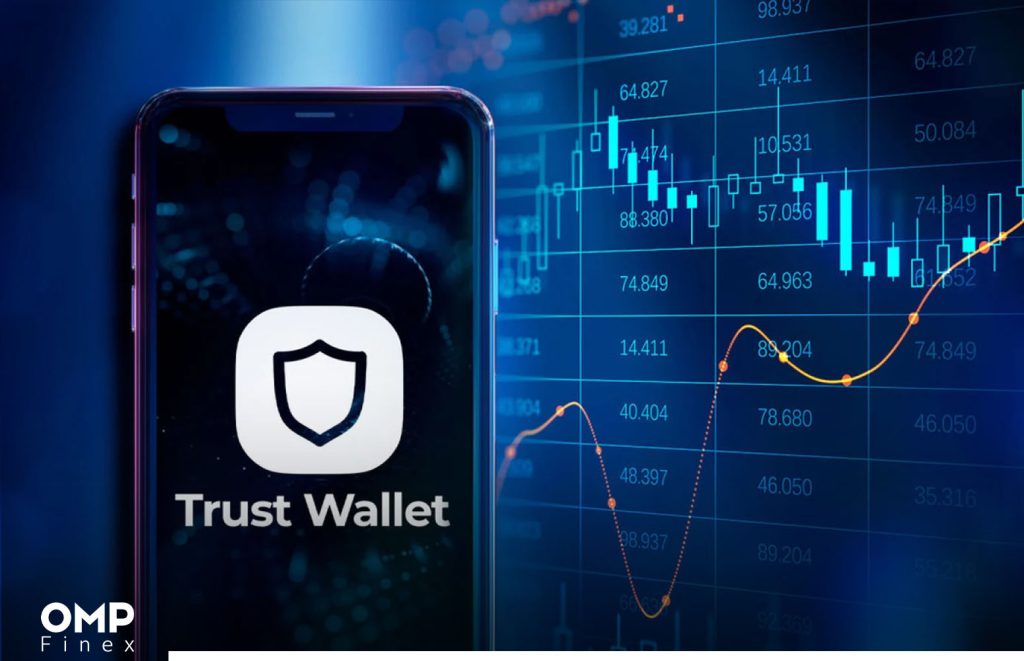
Trust Wallet Token Management Capabilities
How to Add and Track Crypto Assets
-
Automatic Token Detection: Trust Wallet automatically detects and displays major tokens on supported blockchains when users receive them. This helps simplify portfolio management for common cryptocurrencies without manual intervention.
-
Manually Adding Custom Tokens: If a token is not listed automatically, users can manually add it by entering the contract address, token name, symbol, and decimals. This flexibility ensures all ERC20, BEP20, and other supported tokens can be managed.
-
Real-Time Price Tracking: Trust Wallet displays real-time market prices for most major tokens. This allows users to monitor the value of their assets directly within the wallet interface without needing separate apps or platforms.
Organizing and Monitoring Token Portfolios
-
Customized Asset Visibility: Users can toggle the visibility of individual tokens within Trust Wallet. This feature helps declutter the interface and allows users to focus on assets they are actively tracking or managing.
-
Portfolio Balance Overview: Trust Wallet provides a clear, combined balance showing the total value of all crypto holdings. The portfolio value updates automatically based on real-time token prices across different blockchains.
-
Token Sorting and Management: Users can organize their token list by adjusting the order or pinning important assets for easy access. Efficient token management within Trust Wallet enables better portfolio monitoring and quicker transaction execution.

Using Trust Wallet for Decentralized Finance Activities
Accessing DeFi Protocols Through Trust Wallet
-
Using the DApp Browser: Trust Wallet features an integrated DApp browser that allows users to connect directly to DeFi platforms like Uniswap, PancakeSwap, Aave, and Compound. This provides seamless access to decentralized financial services from within the app.
-
Secure Wallet Connection: When accessing DeFi protocols, users can securely connect their Trust Wallet without exposing private keys. Authentication is handled through secure session approvals, protecting user assets during interactions with decentralized applications.
-
Browsing Verified DApps: Trust Wallet highlights and recommends verified DApps for safer usage. Users are encouraged to interact with known platforms to minimize risks associated with phishing sites or malicious contracts in the DeFi ecosystem.
Participating in Liquidity Pools and DeFi Staking
-
Adding Liquidity to Pools: Through DeFi platforms accessed via Trust Wallet, users can provide liquidity by pairing two tokens. In exchange, they earn a share of transaction fees generated within the pool, which can offer attractive passive returns.
-
Engaging in DeFi Staking Programs: Many DeFi protocols offer staking options beyond traditional token staking. Users can stake LP (liquidity provider) tokens or individual tokens to earn extra rewards, helping boost their overall crypto yield.
-
Managing DeFi Investment Risks: While DeFi activities present high earning opportunities, they also carry risks such as impermanent loss and smart contract vulnerabilities. Users must conduct due diligence, diversify their liquidity investments, and stay updated on DeFi platform developments to protect their funds.
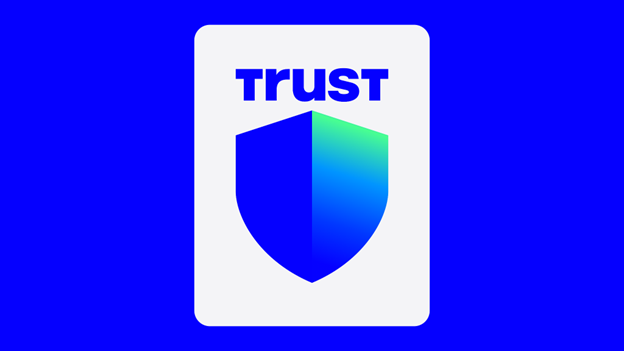
Security and Control Advantages in Trust Wallet
How Trust Wallet Ensures Asset Ownership
-
Private Key Ownership: Trust Wallet users hold their private keys locally on their devices. This guarantees that only the user has access to their funds, unlike centralized exchanges where assets are held by the platform.
-
Non-Custodial Architecture: As a non-custodial wallet, Trust Wallet does not store any user data or cryptocurrency. This decentralized approach reduces risks related to platform hacks, shutdowns, or mismanagement of user funds.
-
Secure Backup Process: Trust Wallet provides a 12-word recovery phrase during wallet creation. This phrase allows users to recover their assets independently, ensuring that no third party is needed to access or restore the wallet.
Importance of Self-Custody for Investors
-
Protection Against Exchange Risks: By maintaining self-custody, investors avoid risks associated with exchange failures, hacks, or regulatory crackdowns that could freeze assets held on centralized platforms.
-
Full Transaction Control: Self-custody ensures that users can execute transactions without third-party approval or restrictions. Investors can move, swap, or stake their assets freely according to their personal strategies and timelines.
-
Enhanced Financial Sovereignty: Holding and managing private keys personally empowers investors with complete financial independence. It eliminates reliance on intermediaries and aligns with the core philosophy of decentralization promoted by blockchain technology.

